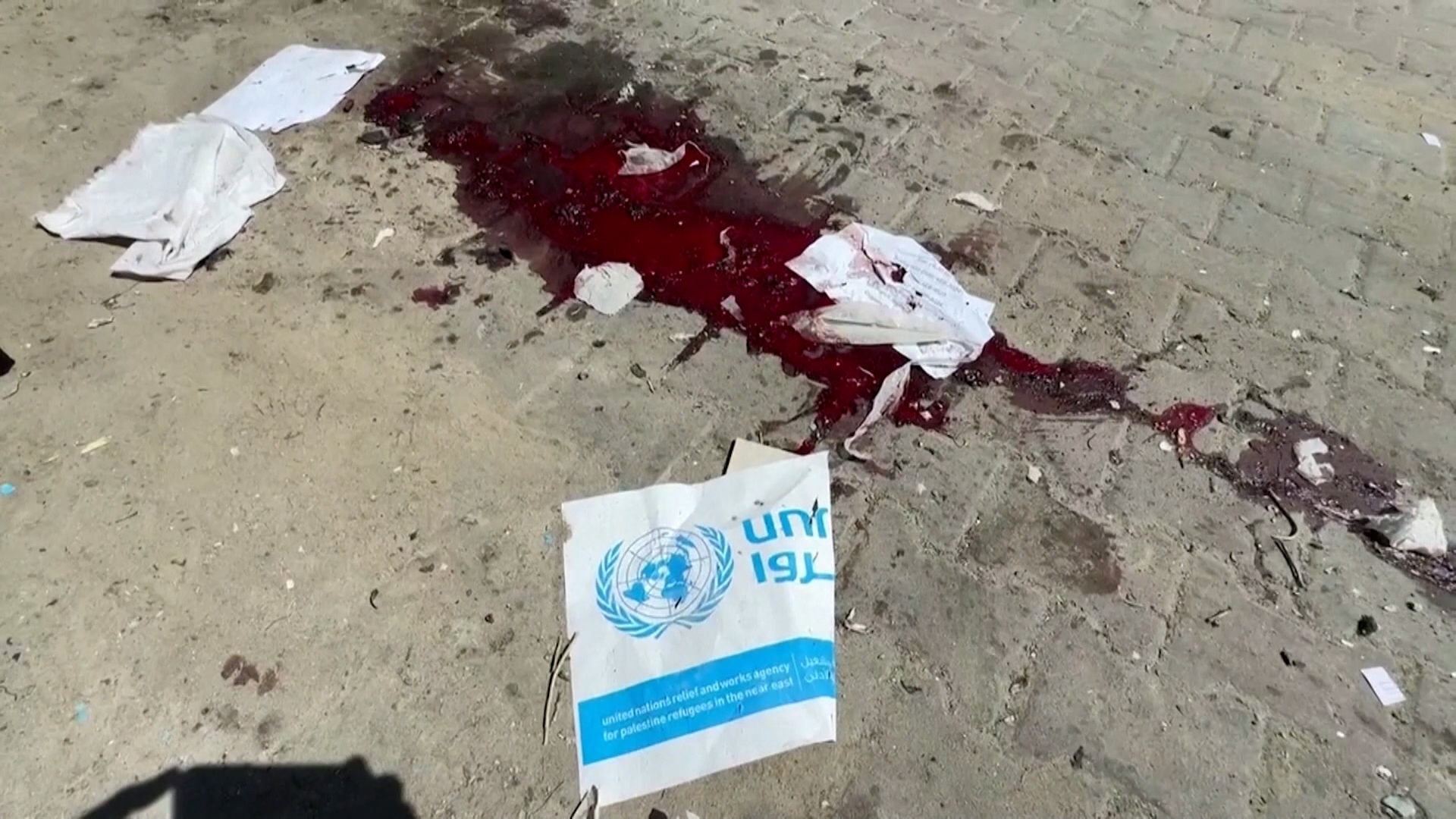
London - Saba:
UN agencies has confirmed that the decision of the Zionist enemy authorities to ban the United Nations Relief and Works Agency for Palestine Refugees (UNRWA) may expose more children to death, and represents a type of collective punishment if fully implemented.
UNICEF spokesman James Elder said in a statement: "If UNRWA cannot operate, we are likely to witness the collapse of the humanitarian system in Gaza.
A sudden decision like this means that "Israel" has found a new way to kill children."
The Zionist decision raised concerns about the agency's inability to continue providing aid in Gaza after more than a year of the war of extermination witnessed by the Strip amid a catastrophic humanitarian situation, where two million people lack the minimum food needs.
UNRWA employs thousands to work in Gaza, and provides basic supplies to almost all residents of the coastal Strip.
Data issued by the Palestinian health authorities showed that more than 13,000 children, whose identities were confirmed, were killed as a result of the ongoing Zionist aggression on Gaza since October 7, 2023, while dozens of children died from diseases resulting from the collapse of the health care system and the lack of food and water.
For his part, Tariq Jasarevic, from the World Health Organization, said about a third of the health care workers participating in the ongoing polio vaccination campaign work with UNRWA. He added the agency has about a thousand health workers in Gaza.
Jens Laerke, spokesman for the United Nations Office for the Coordination of Humanitarian Affairs, said the decision to ban UNRWA represents a form of collective punishment for the people of Gaza. He added: "I think it is a fair description of what they decided here. If implemented, it will increase the acts of collective punishment that we are witnessing in Gaza."
UN agencies has confirmed that the decision of the Zionist enemy authorities to ban the United Nations Relief and Works Agency for Palestine Refugees (UNRWA) may expose more children to death, and represents a type of collective punishment if fully implemented.
UNICEF spokesman James Elder said in a statement: "If UNRWA cannot operate, we are likely to witness the collapse of the humanitarian system in Gaza.
A sudden decision like this means that "Israel" has found a new way to kill children."
The Zionist decision raised concerns about the agency's inability to continue providing aid in Gaza after more than a year of the war of extermination witnessed by the Strip amid a catastrophic humanitarian situation, where two million people lack the minimum food needs.
UNRWA employs thousands to work in Gaza, and provides basic supplies to almost all residents of the coastal Strip.
Data issued by the Palestinian health authorities showed that more than 13,000 children, whose identities were confirmed, were killed as a result of the ongoing Zionist aggression on Gaza since October 7, 2023, while dozens of children died from diseases resulting from the collapse of the health care system and the lack of food and water.
For his part, Tariq Jasarevic, from the World Health Organization, said about a third of the health care workers participating in the ongoing polio vaccination campaign work with UNRWA. He added the agency has about a thousand health workers in Gaza.
Jens Laerke, spokesman for the United Nations Office for the Coordination of Humanitarian Affairs, said the decision to ban UNRWA represents a form of collective punishment for the people of Gaza. He added: "I think it is a fair description of what they decided here. If implemented, it will increase the acts of collective punishment that we are witnessing in Gaza."